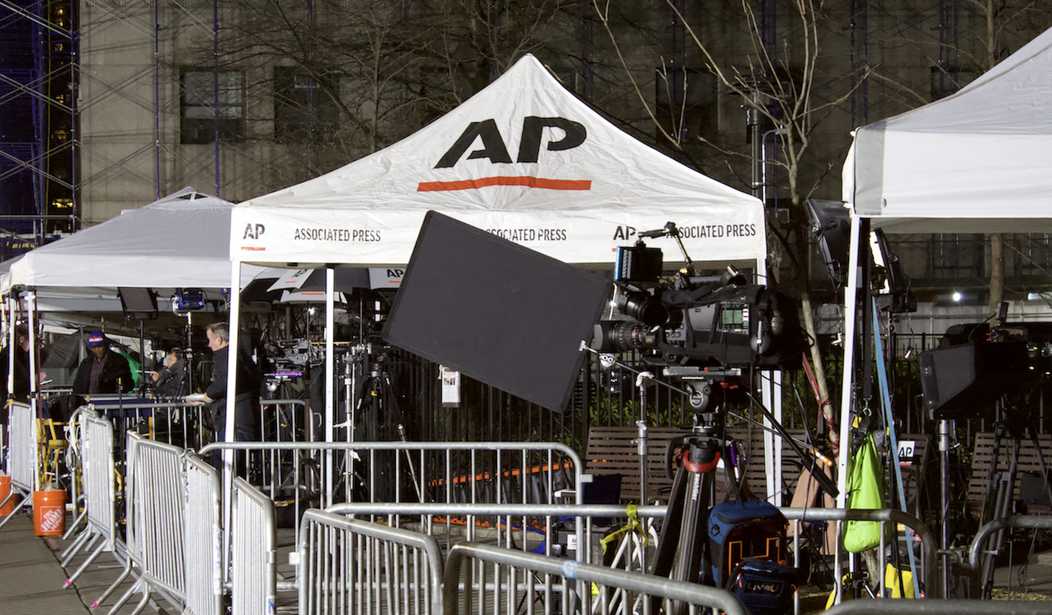A federal judge has denied a request by the Associated Press (AP) to force the White House to allow it to cover events in the Oval Office and on Air Force One. The White House banned AP from the premises because the wire service refused to call the "Gulf of Mexico" the "Gulf of America."
U.S. District Judge Trevor McFadden refused to lift the ban but also scheduled a hearing on March 20 to hear both sides of the issue.
McFadden appeared skeptical of AP's argument that the wire service would suffer "irreparable harm" if prevented from covering events from the White House. He said the news organization “can get access to the same information” from the pool reports that go out to members of the White House Correspondent's Association (WHCA).
The Trump-appointed judge also pointed out that AP delayed bringing the lawsuit for several days, negating the argument that it was suffering harm as a result of the ban.
“It feels a little odd that the White House is bound by certain decisions that this private organization is making,” McFadden said at one point. But later, he said that the White House “has accepted the White House Correspondent Association’s ability to be the referee here.” Indeed, the WHCA has determined in the past who is included and who is excluded from White House briefings. The administration can request that some organization or individual be removed, but the WHCA is under no obligation to obey.
“We look forward to our next hearing on March 20 where we will continue to stand for the right of the press and the public to speak freely without government retaliation. This is a fundamental American freedom,” AP spokesperson Lauren Easton said in a statement.
At one point during the hearing, McFadden described the banning of AP as “discriminatory” and “problematic.” AP's lead attorney, Charles Tobin, claims that the ban's parameters keep shifting, making it hard to comply.
The attorney, Charles Tobin, said that the ban’s “ground seems to keep shifting” and explained how its scope has expanded in recent days to include both AP reporters and photographers – and that it now “appears as though it is a total bar” on the organization’s access to nearly all White House press events.
He said that the White House “picked on AP and nobody else” because the organization publishes a widely used stylebook. The government, Tobin said, wanted his client to “help them in their mission of changing the national vocabulary.”
In court papers, Tobin and other attorneys said that without emergency court intervention, the AP will face irreparable harm that would also flow to its member news organization and readers.
“The AP’s exclusion from the Oval Office, Air Force One, and other spaces open to other members of the press pool severely hinders its ability to produce timely, thorough, and informative reporting,” the filings read.
It used to be that wire services depended on getting the news out first. There's a famous story of United Press International (UPI) reporter Merriman Smith in the "wire car" behind the presidential limo, wresting the car radio phone away from AP reporter Jack Bell to break the news of the assassination of John F. Kennedy. Smith was hunched over, trying to shield the radiophone from Bell, who was frantically pounding his back, screaming at Smith to give him the phone.
Smith won a Pulitzer Prize for breaking the story.
An alert can be sent on any mobile device and reach millions of people before a reporter can type out what the story is about. AP will not suffer "irreparable harm" by getting the news secondhand. It may be a different story for the AP photographer. But ultimately, AP's argument is bogus.
A PJ Media VIP membership is a tremendous value on its own, but you can use the promo code FIGHT to get 60% off! We're not just trying to save America here; we're trying to save the West as we know it.










Join the conversation as a VIP Member